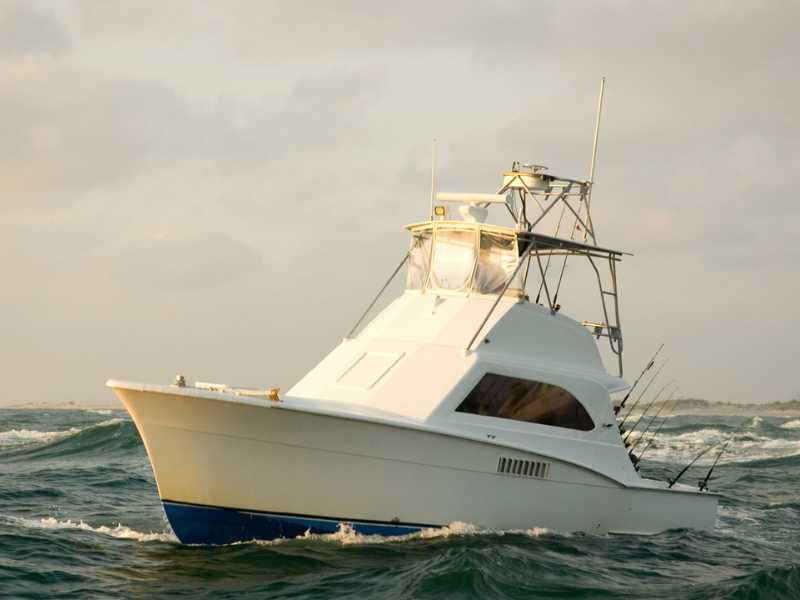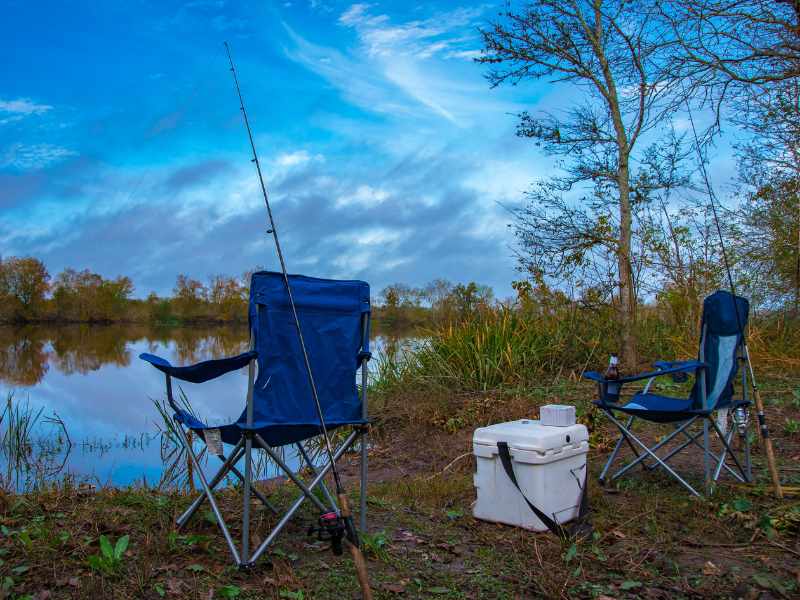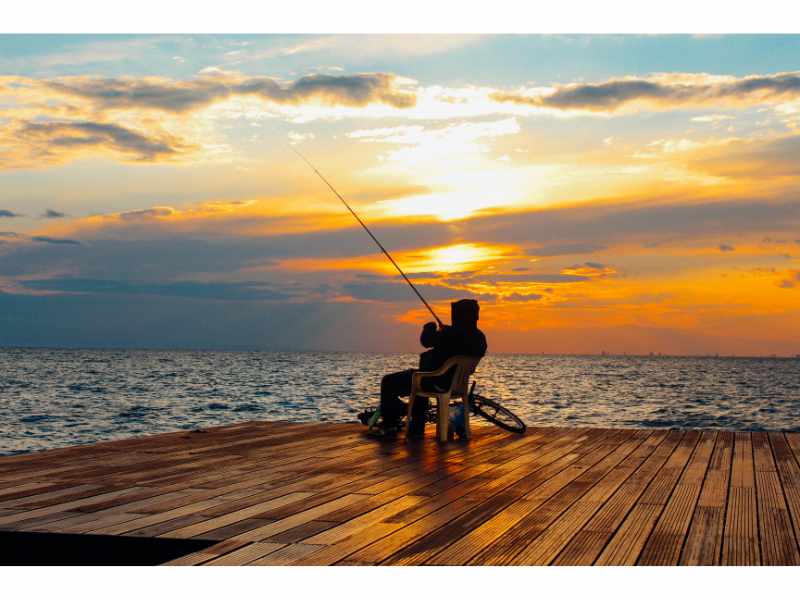Successful fishing in Hilton Head’s Lowcountry requires knowledge of top spots like Jarvis Creek Park and Daufuskie Island’s creeks. Seasonal variations affect fish species availability, with summer being ripe for redfish and spotted sea trout. Renting a charter provides customizable experiences, and compliance with fishing licenses and regulations guarantees sustainable angling. Essential gear includes rods, reels, and safety equipment. Experienced captains offer important insights, making every angling adventure fruitful. As we explore further into this maritime richness, there’s always more to uncover about the unique waterways and marine life of Hilton Head.
Main Points
- Consult experienced captains for insights on fishing techniques and regulations.
- Rent a charter boat for access to diverse marine life and remote fishing spots.
- Be aware of seasonal changes to target specific fish species effectively.
- Familiarize with Hilton Head’s fishing regulations for compliance and conservation.
- Ensure to have essential fishing gear like rods, reels, and tackle boxes.
Unveiling Hilton Head’s Top Fishing Spots
Hilton Head is a celebrated angler’s paradise, boasting a plethora of prime fishing spots that offer a diverse range of freshwater and saltwater species. Jarvis Creek Park is a tranquil haven renowned for its freshwater pond teeming with catfish, bass, and bream. This spot provides a serene environment for engaging in shore fishing, offering a peaceful and safe fishing experience.
For the inshore species enthusiast, Palmetto Dunes and The Sea Pines Resort Lagoons are popular spots. They are well-known for their abundance of Redfish, Trout, Tarpon, Black Drum, and Flounder, catering to anglers of all skill levels. Inshore fishing here offers a rewarding challenge with every cast.
Year-round fishing is made accessible at the Charles C. Haigh Jr. Fishing Pier. This location presents consistent catches, making it one of Hilton Head’s best fishing spots. For those preferring deep sea fishing, the quiet creeks of Daufuskie Island provide a serene setting to target various coastal species. However, it is important to remain mindful of designated swimming areas to have a respectful and safe fishing experience in Hilton Head.
Identifying Common Lowcountry Fish Species
As we turn our attention to the rich diversity of Lowcountry marine life, three species stand out as common catches for Hilton Head’s seasoned anglers: the Red Drum fish, the Spotted Sea Trout, and the Southern Flounder. Each of these species not only offers a unique challenge to the fisherman but also embodies the vibrant aquatic ecosystem of the region. In the following sections, we will explore the distinguishing features of these species, their habitats, and tips for identifying them while on your fishing journey.
Spotting Red Drum Fish
In the diverse, fertile waters of the Lowcountry, the Red Drum Fish, also known as the Redfish or Spot-Tail Bass, stands out as a particularly alluring species for anglers due to its dark red coloration, distinctive tail spot, and robust fighting abilities. These creatures make their home in a variety of habitats around Hilton Head Island, including marshes, flats, and the vicinity of oyster beds, each offering unique fishing opportunities. Anglers are attracted to the Red Drum Fish for its reputation as a formidable fighter on the line and its delectable taste, making identifying this prized species a key skill. As you navigate the abundant Lowcountry waters, spotting the Redfish becomes as much a part of the experience as the catch itself.
Recognizing Spotted Sea Trout
Ever wondered about the striking fish with a dark, elongated body and distinct black spots along its back and upper sides that lurks in the estuaries, marshes, and shallow coastal waters of the Lowcountry? This is the Spotted Sea Trout, also known as the speckled trout or spotted weakfish. Recognizing this fish is essential for any angler in the region. Its characteristic features include a protruding lower jaw and large canine teeth. Adept at hunting in estuaries, marshes, and shallow coastal waters, the Spotted Sea Trout feeds primarily on shrimp, crabs, and small fish. Knowing its habitat and diet can greatly assist in safe and effective fishing. This splendid species is indeed a significant part of the Lowcountry’s aquatic biodiversity.
Distinguishing Southern Flounder
Shifting our attention to another popular catch among the Lowcountry’s anglers, the Southern Flounder is a unique fish distinguished by its distinctive diamond-shaped body and eyes situated on the left side. This bottom-dweller, highly prized for its delicate flavor, is often found near sandy or muddy bottoms in estuaries and tidal creeks. The Southern Flounder has the remarkable ability to change color to blend with their surroundings, a trait that can make them more elusive to the untrained eye. However, understanding this characteristic, along with their unique physical features, can help anglers identify and target them effectively. Ensuring safety while fishing, it’s essential to recognize these traits of the Southern Flounder when exploring the Lowcountry waters.
Renting Charter Boats in Hilton Head
One vital aspect of a successful fishing trip in Hilton Head is the selection of an appropriate charter boat. As this can greatly impact the overall experience, it is crucial to take into account factors such as the cost of boat rentals, and the essential amenities provided onboard. In the following sections, we will discuss these considerations in detail to help you make an informed decision for your next angling adventure.
Choosing the Right Charter
Exploring the process of renting a charter boat in Hilton Head can greatly enhance your angling experience, granting you access to a variety of fishing techniques and remote fishing spots. The Atlantic waters surrounding Hilton Head are teeming with diverse marine life, making it a prime location for anglers of all skill levels. Charter boats, helmed by experienced captains, provide a customized fishing experience tailored to your preferences. These experts offer valuable insights to maximize your fishing success, guiding you to the most productive spots. Whether you’re a seasoned angler or a beginner, renting a charter boat can make your fishing trip both safe and exciting. Take the time to choose the right charter for a rewarding Hilton Head fishing adventure.
Cost of Boat Rentals
Understanding the financial aspects of charter boat rentals in Hilton Head is an important step in planning your angling adventure, with costs typically ranging from $400 to $1,200 for a half-day trip, impacted by factors such as boat size and onboard amenities. Full-day trips can cost between $700 and $2,500, depending on the level of luxury you’re seeking.
Here’s a brief overview of the cost considerations:
- Fishing gear rental could be an additional expense.
- All-inclusive packages may be cost-effective, covering gear, bait, licenses, and meals.
- Booking in advance is recommended for securing competitive rates.
- Remember to budget for gratuity, a customary practice in the charter community.

Essential Charter Boat Amenities
When planning your fishing trip in Hilton Head, it’s important to take into account the array of amenities provided by charter boats, as these can greatly enhance your overall angling experience. Equipped with high-quality fishing gear including rods, reels, and tackle, these boats allow for a variety of fishing techniques. Essential safety equipment such as life jackets, first aid kits, and communication devices are standard, ensuring safety during your trip. Knowledgeable captains and crew members guide you through fishing techniques, local hotspots, and regulations. Additional amenities like onboard restrooms and comfortable seating further enhance your experience. Some charter boats even offer coolers with ice to keep your catch fresh. Hilton Head’s charter boats combine comfort, safety and professional guidance for a memorable fishing adventure.
Acquiring Fishing Licenses and Regulations
Before you cast out your line in Hilton Head Island, be aware that anglers aged 16 and over must obtain a fishing license, as mandated by South Carolina law. This requirement is in compliance with local laws and conservation efforts. The fishing license guarantees that fishing activities are regulated, thereby helping to preserve the natural resources of Hilton Head Island.
Here are some key points to guide you in your angling activities:
- Fishing regulations in South Carolina vary within three miles of Hilton Head Island. Be sure to check the specific size and bag limits for certain species.
- There is a prohibition on fishing for Sharks or Stingrays from the shore in Hilton Head Island. This is a protective measure for both the angler and the marine life.
- Upholding cleanliness in the waters is crucial, especially during sea turtle nesting season. This safeguards the environment and the wildlife.
- Make sure that you are always updated with the current regulations before fishing. This will ensure compliance with local laws and conservation efforts.
Best Seasons for Fishing in Lowcountry
In the rich mosaic of the Lowcountry’s angling calendar, each season brings its own unique fishing opportunities. Summer ushers in an abundance of redfish and spotted sea trout, offering thrilling chances for anglers to test their skills. As the summer heat gives way to the milder temperatures of fall, the black drum becomes more active, diversifying the fishing experiences in the Lowcountry.
Understanding the nuances of these seasonal changes is essential for success. As winter descends, the cooler water temperatures trigger changes in fish behavior. Keen anglers who adapt to these changes can continue to enjoy fruitful outings, even in the coldest months.
Local guides, with their wealth of knowledge and experience, can be invaluable in navigating these shifts in the angling landscape. They tailor experiences to target specific species during different seasons, ensuring that you make the most of your time on the water.
Essential Fishing Equipment for Hilton Head
Equipping yourself with the right fishing gear is essential for a successful and enjoyable angling experience in Hilton Head, starting from essentials like rods, reels, lines, and locally tailored tackle boxes. These tools form the foundation of your fishing equipment, enabling you to effectively cast, retrieve, and handle the diverse species that inhabit Hilton Head’s waters.
In addition to these, there are other items that greatly enhance your fishing experience in Hilton Head:
- Clothing and Footwear: The right attire is vital for comfort and safety. Choose clothing and footwear suitable for the season and conditions, ensuring they are waterproof and provide adequate protection.
- Sunglasses: A good pair of sunglasses with UV protection and polarized lenses help reduce glare and improve visibility, aiding in spotting fish.
- Cooler: An essential item to store your catch and keep your beverages and snacks fresh.
- Safety Gear: Including items like life jackets, first aid kits, and emergency supplies in your fishing equipment provides added peace of mind.
Properly equipped, you can focus on the thrill of the catch, safely enjoying the unique fishing experiences that Hilton Head offers.

Exploring Hilton Head’s Unique Waterways
Often touted as an angler’s paradise, Hilton Head’s lush waterways present a plethora of diverse fishing opportunities, ranging from the lush inshore salt marshes teeming with redfish and spotted sea trout, to the enigmatic depths of the offshore Gulf Stream, home to formidable species like tuna, mahi mahi, and marlin.
Hilton Head’s inshore spots, particularly the flats and salt marshes, offer an excellent environment for light tackle and fly fishing, attracting an abundance of redfish and spotted sea trout. These areas provide not only attractive catches, but also a serene and scenic atmosphere that enhances the overall angling experience. The presence of oyster beds in these locales add to the challenge and reward of the sport, offering a distinct fishing experience unique to the Lowcountry.
In contrast, Hilton Head’s offshore locations, specifically the Gulf Stream, promise adrenaline-packed encounters with big game species. The thrill of hooking a massive tuna, marlin, or mahi mahi is unparalleled, providing a truly unforgettable experience for any angler. Safety is paramount in these offshore pursuits, ensuring that all these angling adventures are not only exciting but also secure.
Preparation Tips for Your Hilton Head Trip
To guarantee a successful and enjoyable fishing adventure in Hilton Head, there are several key preparations to take into account, starting with obtaining a valid fishing license if you’re aged 16 or above. This not only guarantees you comply with local regulations but also contributes to the conservation of the Lowcountry’s diverse marine life.
Here are some preparation tips to maximize your trip planning:
- Familiarize yourself with Hilton Head’s fishing regulations. These can vary depending on the species you’re targeting, so it’s essential to stay informed.
- Connect with experienced captains. They are a wealth of knowledge and can provide valuable insights about the best fishing spots and techniques.
- Be aware of seasonal closures. This can affect the availability of certain species, so plan your trip accordingly.
- Make use of the FishingBooker app. This tool simplifies the booking process and provides a wealth of information about fishing in Hilton Head.
Adhering to these guidelines guarantees your Hilton Head fishing trip is both enjoyable and respectful of the local ecosystem. Remember, preparation is key to a successful fishing expedition in the Lowcountry.
To sum up, fishing in the Lowcountry, specifically Hilton Head, demands knowledge about the top fishing spots, fish species, charter rentals, licenses, regulations, best seasons, and essential equipment. Understanding the unique waterways of Hilton Head and adequately preparing for a fishing trip contribute to a successful and enjoyable fishing experience. This detailed guide provides the requisite information needed to navigate Hilton Head’s fishing scene effectively.

